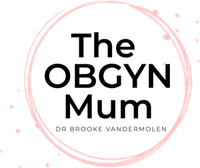I am very grateful to @littlepeachlondon for inviting me to guest-post on this issue on her Instagram feed. For a video and post from me, check out the highlights on her page. There is also a Q&A from me on my instagram page where I give some more information about this subject.
Breastfeeding will do strange things to your periods. All women will experience an amount of bleeding immediately after delivery, but this is not considered a period!
The hormone involved in breastfeeding (prolactin) suppresses the other hormones involved in the menstrual cycle so prevent ovulation, meaning most women experience at least a few months without a period whilst nursing.

Breastfeeding as contraception
Breastfeeding as contraception aka Lactational amennorheoa method can be 98% effective at preventing pregnancy BUT this requires all conditions are met, otherwise this method can be much less effective:
1. Baby is less than 6 months old.
2. Exclusive breastfeeding – any feeds given by bottle (EBM or formula) mean that the breasts do not get stimulated, which increases the likelihood of prolactin levels dropping and ovulation occuring.
3. Periods haven’t already returned
– I do still recommend that if you strongly do not wish to conceive then use an additional method of contraception whilst breastfeeding as there may be times you are separated from your baby or baby sleeps through the night which may stimulate ovulation and you may conceive unexpectedly, before even seeing your first period!

What influences whether periods restart?
-Frequency of nursing – the more often baby feeds throughout day and night, the less likely periods are to restart. It appears that night feeds are even more important for suppression of ovulation, so increasing the gap between night feeds, or doing night feeds with a bottle might be enough to allow ovulation to restart.
-Introduction of solid foods may reduce the amount of milk baby takes and frequency.
-Use of bottles/ dummys reduce nipple suckling so increase likelihood of ovulation.
Can I get pregnant while breastfeeding?
-The short answer is yes but the factors above will affect how quickly this happens.
– If periods returned regularly then it is likely fertility is close to normal.
– If wanting to conceive and periods haven’t restarted you may wish to consider weaning if this is right for your family. Abrupt cessation of Lactation is likely to cause a quicker return to fertility.
– You can continue breastfeeding and still conceive if you change the pattern of feeds (shorter feeds, with more gaps between them by introducing some expressed/ formula bottles between. This is particularly relevant for night feeds).
Most women find their periods return between 9-18 months post partum although but we do know that continued breastfeeding will cause spikes in prolactin levels which can be enough to impact on fertility.
Breastfeeding and pregnancy
Generally, it is fine to continue to breastfeed during pregnancy, especially if your pregnancy is low risk. If you have any complications wiht your pregnancy then discuss this with your medical team, especially if you are at particular risk of preterm birth.
However you may notice 2 significant changes that affect this journey for you:
- Change in milk – your toddler may have a very different reaction to their feeds than before. This is because the taste of the milk may change for them due to the pregnancy hormones, and also because your supply may decrease during the pregnancy.
- Breastfeeding aversion – both as a result of the hormonal changes, and also the engorgement and soreness that happens in your breasts, you may find breastfeeding a very unpleasant experience during pregnancy.
Breastfeeding and IVF
If you haven’t conceived after 1 year of trying, or 6 months without regular periods, you should see your GP who can check if you are ovulating. If, after tests and treatment, you are referred for fertility treatment you may be advised to reconsider breastfeeding. This is a very under-researched area which lacks in firm evidence but the recommendations are because:
- it can decrease the success of an IVF cycle by impacting embryo implantation.
- Some, but not all, medications used in fertility treatment may be harmful to your breastfed child. You should consider the timing of treatment and medications as well as the length of time you intend to nurse for and discuss this with your fertility doctor. This link has more information about where to seek advice about medications and IVF.
Ideally you will wean off breastfeeding prior to IVF and frozen embryo transfer but complete cessation may not be necessary if you are just feeding once or twice per day. It can be very hard emotionally if you feel that you are needing to choose between your future hoped for child and meeting the needs of the child currently in your arms.
As with everything, please do check with your own medical team if you want specific advice tailored to you. To those try to conceive I am sending you baby dust and wish you all the best for your journey!
